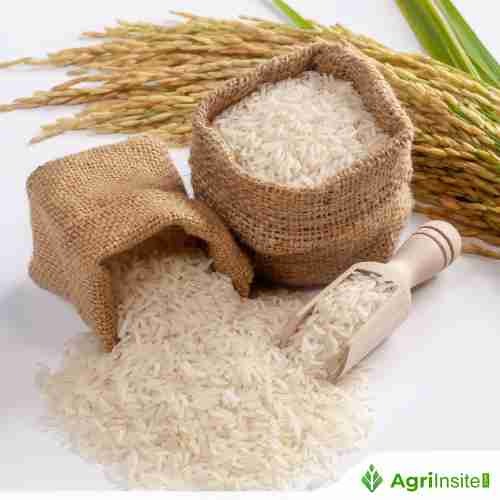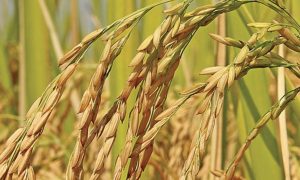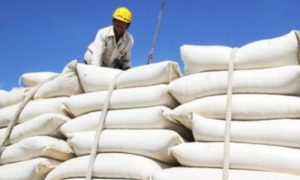Basmati rice dispute clouds India–EU free trade talks

The India-EU FTA faces delays due to a basmati rice GI dispute with Pakistan, including Kashmir claims. India must protect exports and heritage while avoiding the FTA being held hostage. Strengthening GI evidence, considering compromise solutions, and separating trade negotiations from geopolitical tensions are crucial to secure market access and broader economic gains.
Basmati rice dispute: The free trade agreement between India and the European Union, under negotiation for years, has entered an unexpected quagmire. The stumbling block is not tariffs on automobiles or pharmaceuticals, but basmati rice. Both India and Pakistan claim exclusive rights to the “basmati” designation, a dispute that has spilled into Brussels’ corridors and threatens to derail India’s most ambitious trade deal in decades. New Delhi hopes to conclude the pact to secure better access for its exporters, the contest over a grain revered in both South Asian nations has become an outsized diplomatic and economic challenge.
For India, the proposed free trade agreement with the European Union is one of its most consequential trade initiatives. The EU is India’s third-largest trading partner, accounting for more than 10% of its total trade, and a deal could provide tariff concessions across textiles, leather, pharmaceuticals, and agri-products where Indian exporters enjoy a competitive edge. Beyond market access, the agreement promises to anchor India more firmly in global supply chains at a time when rivals such as Vietnam and Bangladesh already enjoy preferential terms with Europe.
Securing the FTA would therefore boost exports, attract European investment, and signal India’s willingness to align with high-standard trade rules — a step critical to sustaining its growth ambitions.
Basmati rice has long been described as the Champagne of India — a premium grain defined by its long stalks, aroma, and cultural heritage. India accounts for nearly 65% of the global basmati trade, while Pakistan supplies most of the rest. The grain commands a price premium of $200–300 per tonne compared with non-basmati varieties. For both countries, the European Union is a key export market.
In 2018, India filed an application with the EU seeking exclusive geographical indication (GI) status for basmati rice. Pakistan lodged a rival claim in 2023, extending its claim to parts of Pakistan-administered Kashmir, a move that New Delhi regards as politically untenable. Granting Pakistan’s application would amount to implicit recognition of its claim over disputed territory, something Brussels is reluctant to do. Yet endorsing India’s sole claim risks shutting Pakistan out of a lucrative market, straining Europe’s ties with Islamabad.
The EU, caught in the middle, has slowed the process. Both applications are being considered in parallel, and officials stress that the sensitive nature of the matter requires careful handling. The outcome will have consequences far beyond rice exports, shaping the credibility of geographical indications in trade law.
Geographical indications have emerged as a powerful tool in global trade, protecting cultural products such as Champagne, Parma ham, or Darjeeling tea. For India, winning GI status for basmati in the EU is about more than commercial gain. It is about safeguarding heritage and asserting intellectual property rights. The Agricultural and Processed Food Products Export Development Authority (APEDA) has invested years in building the case, supplying documentation and scientific evidence of origin.
Yet the basmati dispute complicates the larger FTA. Brussels cannot finalise market access concessions without resolving the GI question. European negotiators are aware that recognising Pakistan’s claim could have geopolitical implications, while granting exclusivity to India risks diplomatic fallout. The result is paralysis, undermining hopes that the FTA would be signed this year despite assurances by European Commission President Ursula von der Leyen.
The EU is India’s third-largest trading partner, accounting for 10.8% of total trade in 2022. An FTA could reduce tariffs on textiles, leather, pharmaceuticals, and agricultural products — all sectors where India is competitive. Without the deal, Indian exporters face stiff tariffs that competitors such as Vietnam and Bangladesh have already avoided through their own trade pacts.
Basmati rice exports, valued at $4.8 billion in FY2023, are a critical component of India’s agri-export basket. Europe is one of the most profitable markets because of higher consumer purchasing power. If Pakistan retains rights to use the basmati label in Europe, Indian exporters risk dilution of their market share. Conversely, if India secures exclusivity, Pakistan’s exporters may be pushed out, triggering retaliatory measures and further politicising the dispute.
The danger is that the FTA could collapse under the weight of a single product. For an economy seeking to diversify exports and attract European investment, the price would be steep.
Pakistan has approached the EU with its own dossier, emphasising that basmati is also grown in Punjab province and adjacent areas. Its 2023 application was notable for including four districts of Pakistan-administered Kashmir, a strategic move that makes the dispute inseparable from the geopolitics of South Asia. For Islamabad, the basmati label is not just about preserving access to premium markets but also about internationalising the Kashmir issue through trade law.
Pakistan’s exporters warn that losing the right to the basmati designation would strip them of market share and premium pricing. With agricultural exports already under stress, Pakistan views the basmati GI as a red line. The EU, wary of alienating either side, has delayed adjudication, effectively using the dispute as leverage in wider trade talks.
This is not the first time basmati has triggered international litigation. In the early 2000s, India and Pakistan jointly challenged US-based RiceTec’s attempt to patent basmati hybrids and trademark the name. The joint campaign was hailed as a rare example of cooperation. But the spirit of collaboration evaporated after the 2008 Mumbai terror attacks. Since then, New Delhi has pursued unilateral protection, and Islamabad has treated basmati as a matter of sovereignty as much as commerce.
The lesson is clear: without watertight documentation, stakeholder representation, and political consensus, geographical indication disputes can drag on for years. India’s application has already faced objections in New Zealand and Australia, where regulators ruled that the term cannot belong to a single country. The EU dispute is therefore not an isolated case but part of a broader contest over intellectual property in agricultural products.
What should India do? New Delhi must separate the FTA from the basmati issue in negotiations with Brussels. While insisting on its rightful claim, India should not allow a single product to hold hostage a comprehensive agreement that could reshape bilateral trade. India also should strengthen its basmati dossier with rigorous scientific evidence, clearer geographical boundaries, and broader stakeholder representation, including farmers from all producing states. This will enhance credibility and reduce grounds for objection.
New Delhi must be prepared for a compromise solution. One option could be a joint India-Pakistan recognition restricted to specific regions, without prejudicing territorial claims. While politically difficult, such an approach would align with global norms on shared heritage products. It must treat geographical indications as a strategic frontier in trade policy. As future disputes over Darjeeling tea, Alphonso mangoes, or other products loom, India needs institutional capacity to defend its agricultural heritage in global forums.
The basmati dispute has exposed how cultural pride and territorial rivalry can complicate modern trade agreements. For the EU, it is a question of balancing commerce with geopolitics. For India, it is a test of whether trade diplomacy can rise above intractable bilateral quarrels. The FTA with Europe is too important to be sacrificed at the altar of one grain, however fragrant. New Delhi must adopt a pragmatic, evidence-based, and forward-looking approach. If it fails, the opportunity cost will be measured not just in lost rice exports, but in diminished global credibility as a trade partner.
For almost 30 years of expertise in the agri markets, UkrAgroConsult has accumulated an extensive database, which became the basis of the platform AgriSupp.
It is a multi-functional online platform with market intelligence for grains and oilseeds that enables to get access to daily operational information on the Black Sea & Danube markets, analytical reports, historical data.
To Read more about Rice News continue reading Agriinsite.com
Source : Ukr Agro Consult














